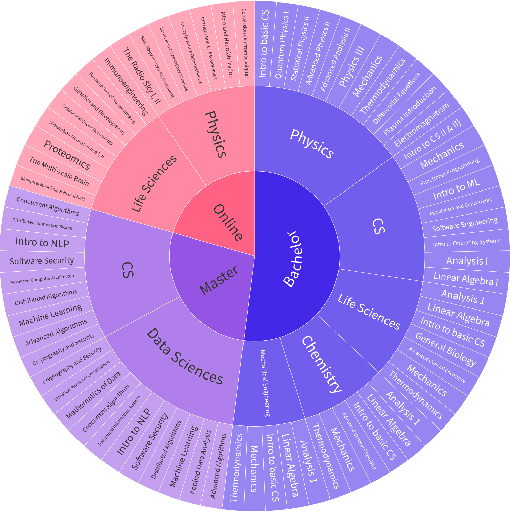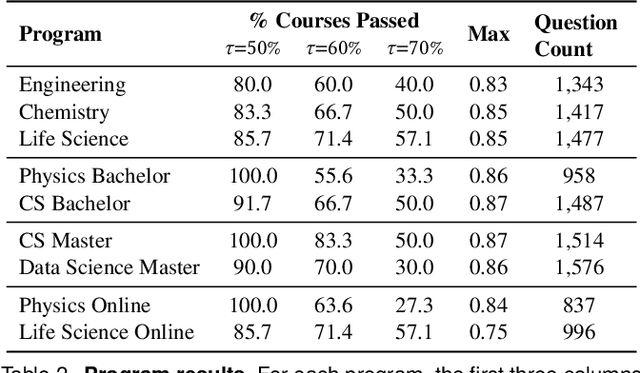Tanja Kaser
Could ChatGPT get an Engineering Degree? Evaluating Higher Education Vulnerability to AI Assistants
Aug 07, 2024



Abstract:AI assistants are being increasingly used by students enrolled in higher education institutions. While these tools provide opportunities for improved teaching and education, they also pose significant challenges for assessment and learning outcomes. We conceptualize these challenges through the lens of vulnerability, the potential for university assessments and learning outcomes to be impacted by student use of generative AI. We investigate the potential scale of this vulnerability by measuring the degree to which AI assistants can complete assessment questions in standard university-level STEM courses. Specifically, we compile a novel dataset of textual assessment questions from 50 courses at EPFL and evaluate whether two AI assistants, GPT-3.5 and GPT-4 can adequately answer these questions. We use eight prompting strategies to produce responses and find that GPT-4 answers an average of 65.8% of questions correctly, and can even produce the correct answer across at least one prompting strategy for 85.1% of questions. When grouping courses in our dataset by degree program, these systems already pass non-project assessments of large numbers of core courses in various degree programs, posing risks to higher education accreditation that will be amplified as these models improve. Our results call for revising program-level assessment design in higher education in light of advances in generative AI.
Graph Reasoning for Explainable Cold Start Recommendation
Jun 11, 2024Abstract:The cold start problem, where new users or items have no interaction history, remains a critical challenge in recommender systems (RS). A common solution involves using Knowledge Graphs (KG) to train entity embeddings or Graph Neural Networks (GNNs). Since KGs incorporate auxiliary data and not just user/item interactions, these methods can make relevant recommendations for cold users or items. Graph Reasoning (GR) methods, however, find paths from users to items to recommend using relations in the KG and, in the context of RS, have been used for interpretability. In this study, we propose GRECS: a framework for adapting GR to cold start recommendations. By utilizing explicit paths starting for users rather than relying only on entity embeddings, GRECS can find items corresponding to users' preferences by navigating the graph, even when limited information about users is available. Our experiments show that GRECS mitigates the cold start problem and outperforms competitive baselines across 5 standard datasets while being explainable. This study highlights the potential of GR for developing explainable recommender systems better suited for managing cold users and items.
 Add to Chrome
Add to Chrome Add to Firefox
Add to Firefox Add to Edge
Add to Edge